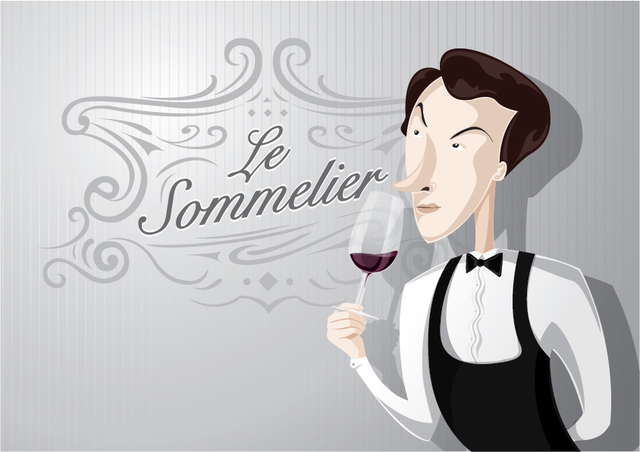As sommeliers and candidates arrive for Le Concours du Meilleur Sommelier du Monde (Best Sommelier of the World Competition) in Mendoza, we spoke with some of the previous winners at an intimate dinner in Dominio del Plata last night to glean some tips from the top for sommeliers hoping to become the new Best Sommelier of the World:
Paolo Basso, Best Sommelier of the World 2013

“I started to compete in 1995, and never stopped. For the last competition, after being 2nd three times, I asked my wife permission if I could participate again, because you have to dedicate the time and money to the competition.
“I started preparing very gradually for the competition, every day I would read the news and spend half a day learning about any new appellations and memorise the new information.
“My problem in the previous competitions was the spirits tasting. I have a very delicate palate and I can’t bear spirits over 40 degrees in alcohol. My wife told me that she would support me in another competition, but only if I worked more on my spirit tasting. So we did 12 spirits in black glasses once a week at the beginning, then twice a week, until we were doing 12 spirits a day!”
Is there any advice you would give competitions during the competition?
“For the competition, it is very important to forget the pressure. Remember it is about yourself, and you have to rest. Sleeping is very important. Don’t feel the pressure – stress can steal 10 to 20% of your capacity.”
Andreas Larsson, Best Sommelier of the World 2007

“Sacrifice. Throughout my seven years of competing I didn’t have a family or social life. I didn’t suffer though, it was my vocation. I was late to the profession, I started when I was 27 and so I had to read every book and attend every tasting.
“What I really loved about when I prepared for the world championship is the team I had around me. My coach did a great job in writing tests for me and having a strategic plan for me.”
What was one of the hardest elements for you?
“I am a rather big person and being big is good for having a presence, but you aren’t always smooth in service. I would film my performance and learn from watching myself to become more smooth.”
What are you tips for anyone competing?
“The last six months is all about wellbeing. I was jogging every morning. It isn’t about luck – it is about preparing yourself. A bad day doesn’t exist. Through physical and mental exercise, I felt perfect when I was in the competition. It is important to work on your psychology, not only as a sommelier – but as a human!”
Shinya Tasaki, Best Sommelier of the World 1995

“Candidates should remember that the competition is for them, not for someone else – it should be about what they want to achieve. And if you win the competition, you must know that it will change your life.”
How does it change your life?
“In service, it is very difficult to be trusted by customers. It takes time to be trusted by customers, but by winning the title this process is much faster. And there are many opportunities coming up.”
You are currently the President of the Association de la Sommellerie Internationale, how do you see your role?
“Fifty five member countries are now in the association and the position of the President is to make the communication between members smooth.”
Is it harder being a candidate or the President?
“Being a candidate is more of a burden on your life. You need to spend lots of time studying to win the competition, there were several times that I wanted to give up. As President organising the competition is time consuming, and sometimes I wonder why I am doing it – but it is very rewarding when we announce the winner. I feel very honoured to have this role!”
Serge Dubs, Best Sommelier of the World 1989

“I had two dreams when I was young: one was to compete in sports and one was to travel the world. I was always in sports competitions when I was young and I was missing the competition, so I changed to a sommelier competition! The second was to travel the world, and in wine I meet people from different cultures and place. When I was studying I was working 15 hours a day and then on my day off, I would drive 5 hours to visit different vineyards.”
How did you train for the competition?
“For the year leading up to the competition I only had 4 hours sleep a day, never ate after 8pm, and didn’t drink more than a very small glass.”
“I learnt how to sleep for just one minute or two minutes at the time, when I was between meetings or at the traffic light. During the competition I was awake for 24 hours. The world competition is a phenomenal challenge and you have to be in top shape.”
That sounds dangerous at the traffic light! What were you thinking during the 1989 competition?
“I don’t even remember half of it now. I was focused on the competition. I only came back to reality when I found out I was the winner.”
What do you like about being a sommelier?
“I like very much that we have to taste wine, but the philosophy of a sommelier is to work in a restaurant and make people happy. It seems easy, but this is a way of life.”
